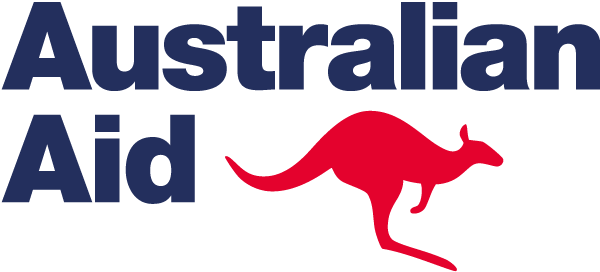 Australian Aid
Australian Aid
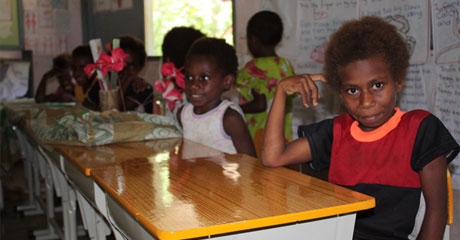
- Australia supports the Vanuatu Government's long terms goals of improving education quality, providing more equitable access to education, and ensuring a well-managed education system. The Vanuatu Education Support Program (VESP) provides targeted support to the Ministry of Education and Training's (MoET) Corporate Plan, Vanuatu Education Sector Strategy 2007-2016 and Interim Vanuatu Education and Training Sector Strategy 2017-2018.
- Vanuatu Skills Partnership is an Australian Government funded program working with the Vanuatu Ministry of Education and Training (MoET) and Provincial Governments to coordinate and facilitate the delivery of targeted skills training services in communities.
- Australia Awards offer the next generation of Vanuatu's leaders an opportunity to undertake study, research and professional development in Australia and the Pacific region. Through these prestigious scholarships, Australia is giving ni-Vanuatu students the skills and knowledge to drive change and influence economic and social development.
Vanuatu Country Profile (Australian Department of Foreign Affairs and Trade)
 Coffey International
Coffey International
More than 400 primary schools across Vanuatu are about to receive education kits designed to improve the literacy and numeracy of children from kindergarten to year three. The initiative is part of the Vanuatu Education Support Program, managed by Coffey on behalf of the Australian and New Zealand governments.
The kits will be accompanied by training from curriculum advisers, as well as teacher support information. The program provides targeted support to the Vanuatu Ministry of Education, with the long-term goals of improving education quality, providing more equitable access to education and a well-managed education system.
The basic materials are required as a priority for schools to enable teachers to kick-start the journey to achieving longer term early literacy and numeracy outcomes. The program also involves capacity-building within local schools to ensure continuous professional support for involved teachers.
 Deutsche Gesellschaft für Internationale Zusammenarbeit (GIZ)
Deutsche Gesellschaft für Internationale Zusammenarbeit (GIZ)

GIZ's mission in Vanuatu is to strengthen its capacity to cope with climate change impacts. Some of their programs/activities include:
- Mainstream Climate Change into the curriculum in partnership with the Curriculum Development Unit (CDU).
- Developed a picture based toolkit on Climate Change education for schools.
- Launched a Pou and Miri storybook series for K-3 Teacher Resources.
- Launched the Cloud Nasara Toolkit for schools.
- Developed a series of modules for TVET/VRDTCA on Climate and Disaster Risk Reduction.
- Coordinated the Climate Zone school competition for the last 3 years.
Coping With Climate Change In The Pacific Island Region (GIZ)
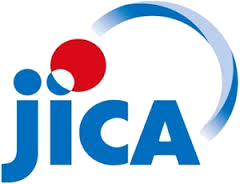 Japan International Cooperation Agency (JICA)
Japan International Cooperation Agency (JICA)
In the Education Sector, Japan's cooperation towards Vanuatu is implemented through JICA's Volunteer Programme and Japan's Grassroots and Human Security Grant Projects, alongside assistance from other countries and organizations, such as, Australia, New Zealand, France, EU, UNICEF and Peace Corp who are also actively engaged in this sector.
However, currently, most donors are focusing on language policy (the bi-lingual system of studying in schools), with insufficient attention being given to other subjects. Therefore, JICA's area of focus within the Basic Education Improvement Programme is on contributing towards improving the quality of basic education in maths, music and physical education through the placing of volunteers.
Basic maths is considered to be an especially important factor for economic development and, based on the Vanuatu Education Sector Strategy, JICA is attempting to strengthen cooperation in the primary maths field.
Vanuatu Country Profile (Japan International Cooperation Agency)
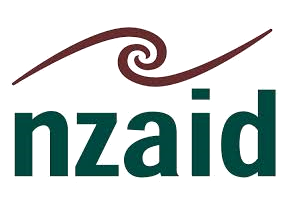 New Zealand Aid (NZAid)
New Zealand Aid (NZAid)
NZAid provides aid and support in the form of improving access to, and the quality of, basic education and workforce training are priorities to help Vanuatu achieve its goal of a quality education for all. The New Zealand Aid Programme, AusAID and UNICEF are helping build the ability of the Ministry of Education to better deliver education services under the Vanuatu Education Road Map (VERM).
- provision of school grants for children in years one to six to replace fees paid by parents and encourage more children to attend school
- building classrooms and water tanks
- providing reading books and stationery to primary schools
- supporting development of a national curriculum and curriculum standards.
To assist Vanuatu in meeting its human resource needs, the New Zealand Aid Programme funds scholarships for study at New Zealand and Pacific tertiary institutions. The scholarships programme is supplemented by a Short-Term Award Scheme to cater for professional training or attachment to a New Zealand organisation to gain hands-on experience.
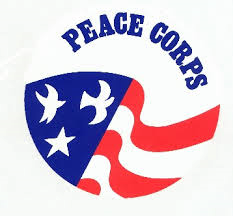 Peace Corps
Peace Corps

Peace Corps Vanuatu currently runs an Education Project Volunteers are assigned to rural primary schools, and in some cases, secondary schools, providing teacher training and computer education. The Volunteer counterparts are the Headmasters and/or the Zone Curriculum Advisors (ZCAs).
Volunteers support the commitment of the Ministry of Education to improve the quality of basic education by promoting the enhancement of teaching skills and methodologies resulting in higher literacy levels and effective learning by students.
Volunteers also support the building of information technology capacity at secondary schools through the training of teachers and students and the development of computer systems to meet the information technology needs of schools and education offices.
 UNICEF
UNICEF
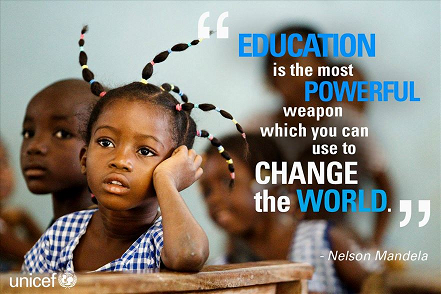
UNICEF has committed its resources to achieving results for children in the following five priority areas:
- Ensure that every girl and every boy completes a quality primary school education
- Promote integrated early childhood development, ensuring every child the best possible start in life
- Safeguard every child against disease and disability, emphasising immunisation 'plus'
- Stop the spread of HIV/AIDS and ensure that children and young people already affected by the disease are cared for
- Protect every child so that all children can grow up free from violence, exploitation, abuse and discrimination
Gains for children in these five areas are likely to contribute significantly to the full realisation of children's rights. The five priority areas align closely with the goals and strategies articulated in the outcome document of the UN General Assembly Special Session on Children in 2002, A World Fit For Children, to which Vanuatu has given its endorsement.
The goals and strategies identified in A World Fit For Children were developed with reference to the MDGs, and many are the same.
 UNESCO
UNESCO

UNESCO’s educational objectives are to support the achievement of Education for All (EFA) by;
- Mobilizing for education: so that every child, boy or girl, has access to quality education as a fundamental human right and as a prerequisite for human development.
- providing global and regional leadership in education
- strengthening education systems worldwide from early childhood to the adult years
- responding to contemporary global challenges through education
As the only United Nations agency with a mandate to cover all aspects of education, UNESCO’s work encompasses educational development from pre-school through to higher education, including technical and vocational education and training, non-formal education and literacy.
The Organization focuses on increasing equity and access, improving quality, and ensuring that education develops knowledge and skills in areas such as sustainable development, HIV and AIDS, human rights and gender equality. UNESCO works with governments and a wide range of partners to make education systems more effective through policy change.
It coordinates the Education for All movement, tracks education trends and raises the profile of educational needs on global development agendas.

